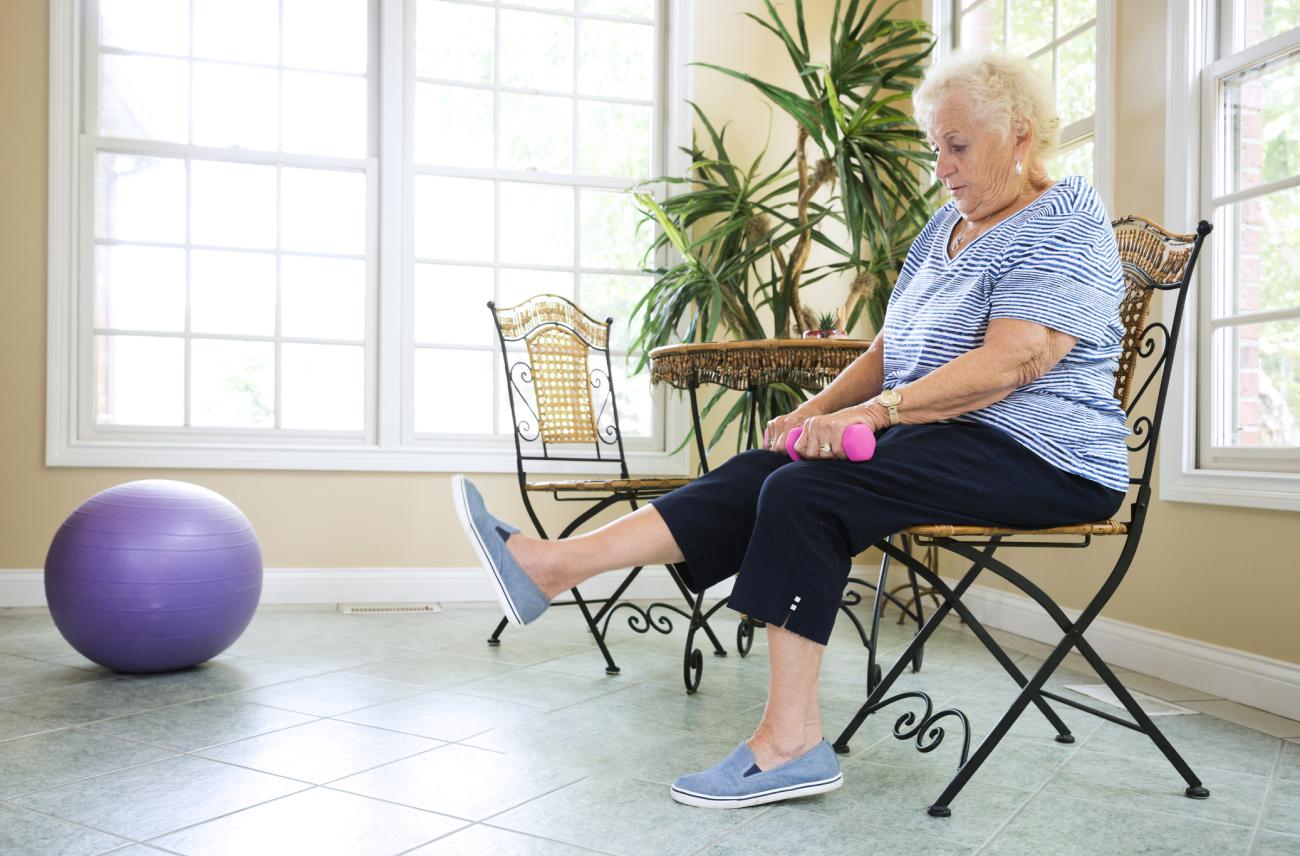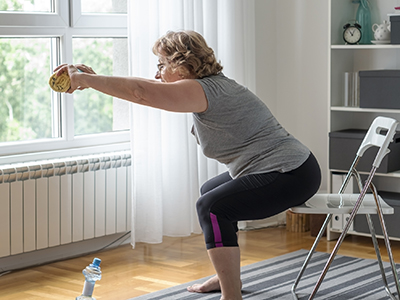
Exercise improves the speed of information processing, which leads to fewer falls.
We exercise to keep our bodies fit, but as we age the benefits of exercise for our minds may be just as important to prevent physical injuries. According to the results of a randomized control trial led by Vancouver Coastal Health Research Institute researcher and Canada Research Chair, Dr. Teresa Liu-Ambrose, testing for and improving cognitive processing speed is important when it comes to reducing injurious falls among at risk older adults.
“We know that exercise, and keeping people physically healthy and fit, reduces the risk of falls,” says Liu-Ambrose. “We generally assume this is because exercise improves physical functions, such as muscle strength and balance. What is not as well-recognized are the cognitive benefits of exercise and how they contribute to falls prevention.”
“To our knowledge, this is the first randomized clinical trial to show that improved cognitive function is a mechanism by which exercise reduced falls in older adults.”
Liu-Ambrose’s secondary analysis assessed 256 community dwelling older adults aged 70 or older who had fallen within the past 12 months and were at high risk of a subsequent fall. Fifty per cent of participants were randomly placed into a test group that involved the Otago Exercise Program and usual clinical care, while the other half received only their usual clinical care.
Participants in the Otago group were asked to complete a home-based balance and strength training exercise program under the direction of a physical therapist over the course of six months. All participants also completed a range of cognitive tests, including the Digit Symbol Substitution Test (DSST)—which involved arranging a series of numbers from one through nine with corresponding symbols within 60 seconds—at the start of the study, as well as one year later.

The DSST is a standard test of cognitive processing speed. It requires the ability to sustain attention and make use of higher order cognitive processes, such as visual spatial reasoning, set shifting and working memory. These higher order cognitive processes bolster other cognitive abilities, including concentration, planning and strategizing. When compromised, prior research has shown that reduced cognitive processing speed predicts subsequent falls, including injurious falls.
Liu-Ambrose’s study noted that there were 195 falls observed among the 123 participants in the exercise group, versus over 2.5 times that (325 falls among 133 participants) in the usual care only group. This included 77 moderate injurious falls in the exercise group and 171 moderate injurious falls in the usual care only group.
The study also found that exercise significantly improved cognitive processing speed compared with the usual care only. Importantly, Liu-Ambrose and team found that improved cognitive process speed, not changes in muscle strength or balance, significantly contributed to the effect of exercise on subsequent injurious falls.
“Our study shows that, among frail older adults, it seems to be that improved cognitive aspects are the key reasons why exercise reduced falls. This may be because of the protective factors that come with improved attention, decision making and reaction time during everyday mobility and activities.”
A brief cognitive assessment could enhance patient outcomes
Falls are the leading cause of injury among older Canadians. Each year, around one in three seniors aged 65 years and older will fall at least once. As well, over one-third of seniors who are hospitalized due to a fall will be placed in long-term care.

“Cognitive processing speed underlies a lot of our other cognitive abilities, along with our ability to move safely in our environment,” explains Liu-Ambrose. “For instance, when walking a dog, the brain needs to process what it is doing quickly enough to react to changing circumstances. If the dog pulls on the leash and the person walking it is not able to react quickly enough, that person may end up falling over.”
“Fall risk factors are multifactorial, and poor balance, strength and cognitive function are all contributors.”
“What we have shown through our research is that exercise may reduce the risk of falls by targeting the brain and improving cognitive processing, which allows people to attend to their environment, make better decisions and react quickly and effectively when at risk of falling.”
Liu-Ambrose hopes these results will lead to the further integration of cognitive testing and enhancement into falls prevention clinical care and approaches. For example, when it comes to exercise, Tai Chi—which combines focusing on a set of movements, mindfulness, balance and physical exercise—has both physical and cognitive benefits and is an effective falls prevention approach.
“Any time I talk about this, I advocate for the integration of a brief cognitive screening test,” says Liu-Ambrose. “The DSST only takes 90 seconds, and the information gained from that assessment of cognitive skills can better inform care recommendations.”


